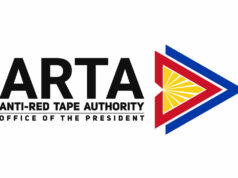THE Government Service Insurance System (GSIS) said it will continue to invest in private infrastructure projects after its current vehicle devoted to the sector committed nearly all of its funds to various investments.
In a statement, the state-run pension fund said it will continue to invest in private infrastructure assets through a fund vehicle.
“This private fund vehicle works for us since we are able to successfully tap the expertise of experienced investors,” GSIS President and General Manager Jesus Clint O. Aranas was quoted as saying in a statement.
Mr. Aranas added that the investment vehicle “ensures a good low risk-return profile for our investments.”
He gave no details about the size of its future intended investment in infrastructure.
GSIS started making capital available for infrastructure development in 2012 after it committed to invest P16.764 billion in the Philippine Investment Alliance for Infrastructure (PInAI), the first private equity fund for Philippine infrastructure projects.
PInAI is managed by global asset manager Macquarie Infrastructure and Real Assets, while its investors include the Asian Development Bank, Algemene Pensione Groep (APG) of the Netherlands and the Macquarie Group.
Among the investments made by the fund are renewable and non-renewable projects around the country, coastal storage facilities in the Subic Bay Freeport Zone, as well as the operation and maintenance of the existing 20 kilometers of Light Rail Transit Line 1 over 32 years.
As of end-2017, the fund is almost fully deployed.
“The greater returns that this fund is generating helps GSIS to lengthen its actuarial life that will enable us to fulfill our current and future obligations to our members and pensioners,” Mr. Aranas noted.
Currently, the pension fund’s actuarial life is at 35 years or until 2051 using the 2016 year-end data.
GSIS will also “seek to diversify its investments in global assets which will aid in managing the risk of [its] investment portfolio.”
Earlier this year, Mr. Aranas said it wants to put $800 million in foreign-currency instruments. It will hire two external asset managers which will have an allocation of $400 million each.
“$800 million is really for testing (the waters) in investment. It’s not too big… What we need is to understand the market globally, and we would like to look at our global fund managers how they handle it,” Mr. Aranas said in a previous press conference. — Karl Angelo N. Vidal



